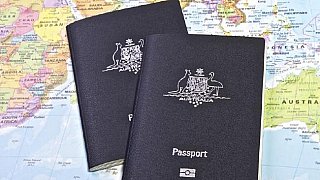
Dual citizenship is a back-burner issue in the United States, but it has recently exploded in Australia, where five members of the Parliament were bounced from their seats by a ruling of that nation's High Court.
As a matter of fact, one Aussie pol, who holds a position roughly comparable to our vice president, was declared ineligible to hold his seat and he (after renouncing the other citizenship) will have to run again for that position. Given his coalition's one-vote margin in the powerful House of Representatives, the resulting by-election on December 2 will be a significant one.
Barnaby Joyce, the leader of the National Party, and, until a few days ago, deputy prime minister, lost his seat in the House of Representatives and in the Cabinet when the court ruled that he was a New Zealand citizen and had not renounced that status. He was the only member of the House to lose his seat; the other four are members of the not-quite equal Senate and will presumably be replaced by members of their own parties through votes of their respective state legislatures. (Two of these four resigned from the Senate before the court ruling.)
The court ruled that only people who were only citizens of Australia were eligible to hold elected office. Several of the five who lost their seats had only the foggiest notion as to their dual citizenship, having, in most of the cases, inherited it from a parent; none had added another citizenship to their Australian one by moving to another country.
In one case, a member of the Australian Senate, Fiona Nash, also of the National Party, said that she had been unaware of her UK citizenship, by descent from her father with whom she was estranged, according to the New York Times.
An outsider might think that such a ruling would negatively impact the Labor Party given the affinity of immigrants for that party, but none of the five were members of that party. The National Party in Australia is the most conservative of the three major parties and largely represents rural Australia. It is routinely in coalition with the more urban, and larger, of the two conservative parties, the Liberals. Labor is the opposition.
There was some discussion in the United States about the citizenship of Sen. Ted Cruz (R-Texas), then running for the GOP nomination for president, in early 2016. He was born in Canada to an American mother and a Cuban father. Although the matter was raised by then-candidate Donald Trump, the issue soon evaporated.
There appears to be no provision in U.S. law that says that a holder of elective office cannot hold another citizenship. The Constitution requires that the president be a "natural born" citizen, and that senators must have obtained citizenship nine years, and House members, seven years, before being sworn in.
For more on dual citizenship in the United States, see this 2001 CIS Backgrounder by Stanley Renshon of the City University of New York Graduate Center.
